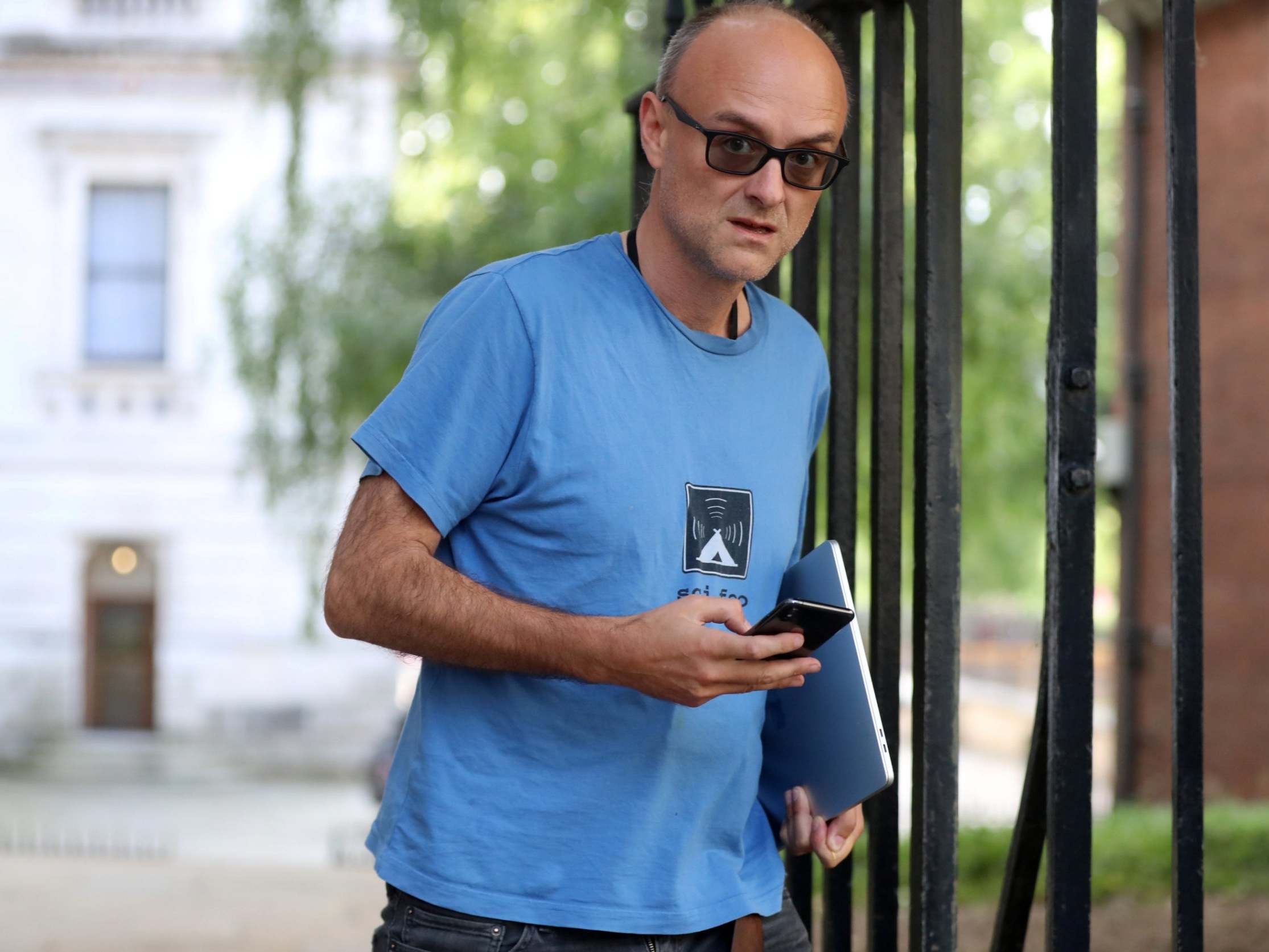The government has set an unwelcome precedent in its use of taxpayers’ money for political purposes
No 10 will find it hard to take the moral high ground on any future use of public money for politically ambiguous projects, writes Sean O’Grady


After months of rumours and allegations about the possible misuse of taxpayers’ money by senior government figures for political opinion polling, confirmation has come – via a legal challenge by the Good Law Project – that it did indeed take place, and that those involved were conscious that what they were doing was at least extraordinary.
As the Covid crisis started to escalate last year, Dominic Cummings, Ben Warner and Michael Gove do indeed appear to have awarded a contract worth some £560,000 to a company headed by a close former associate from the Vote Leave campaign. Hanbury Strategy is run by Paul Stephenson, who had served as special adviser to Tory ministers Andrew Lansley and Philip Hammond.
The contract was ordered by Cummings, who said that it was on the direct orders of the prime minister, Boris Johnson, previously the face of Vote Leave. There was to be no due process, no tendering, and not even cursory oversight of the transaction; and it was to happen immediately. In the words of one Cummings email: “Anybody in CABOFF whines tell them I ordered it from PM.”
The procedure certainly unnerved civil servants who were being made to break the civil service code, compliance with which is a condition of their employment. One concerned official protested via email that: “Hanbury measure attitude towards political figures, which they shouldn’t do using government money, but they have been asked to and it’s a battle that I think is hard to fight.”
There were at least two major, and interrelated, problems with the Hanbury contract. First, as is evident from the documents disclosed in court, there was no proper accountability for the expenditure of half a million pounds of public money.
Second, it had “apparent bias”, to use the legal term – quite against the spirit and letter of civil service ethics, even in times of war or national emergency. Hanbury and its boss were closely associated with the Conservative Party (they had conducted polling on its behalf during the 2019 general election). Some of the questions, broadly about the government’s response to the pandemic, were clearly more useful from a political point of view than for the purposes of public health. Thus ministers could tailor their remarks and policies to align with public sentiment, at least to some extent, as opposed to the best scientific opinion. Questions were also asked in the polling about prominent Labour figures such as Keir Starmer and Sadiq Khan.
A defence of the move – and of the generally improvised decisions of spring 2020 – has been made on a number of occasions by Cummings, who argues that the pandemic presented an unprecedented situation and an emergency, when every second counted, leaving no time for niceties. Stephenson and Hanbury were well known to Cummings, and trusted. Hence the speedy awarding of the contract. Against that argument are examples of urgent episodes such as the rescue of the banks during the financial crisis of 2008-09, when normal standards and processes to ensure transparency were still adhered to.
The upshot, though, is a further body of evidence supporting surges of cronyism in government, and a feeling that once-high standards of probity over public money are being discarded in favour of politically targeted expenditure. The sums involved have been huge. A high court judge, in a separate case, ruled in February that around £15bn in Department of Health PPE contracts hadn’t been correctly reported to the paying public. The failure to even publish the contracts within the 30-day statutory period breached the “vital public functions” of transparency in respect of how “vast quantities” of taxpayers’ money was used.
The political polling contract was one other relatively modest example of such activity, but other sums allocated with a party political dimension run into many millions, if not billions, often focused on marginal seats (or those held by ministers), through projects such as high-street regeneration and the various “Build Back Better” initiatives.
Albeit in the unusual conditions of a pandemic, an unwelcome precedent has been set about the use of taxpayers’ money in politically ambiguous projects. It is, in short, something Labour could do if it returned to power, to the detriment of the Conservatives, who would be in a weak position to try and seize the moral high ground. Maybe someone should do some polling about the public’s view of such things.

Join our commenting forum
Join thought-provoking conversations, follow other Independent readers and see their replies
Comments